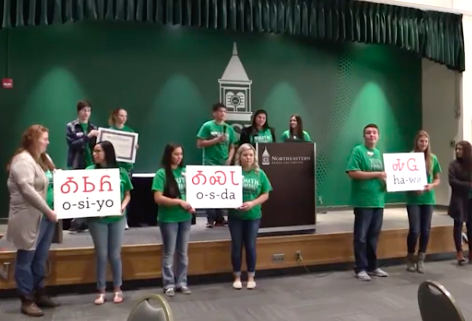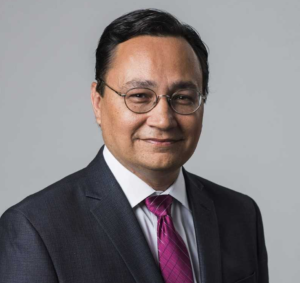
- Details
- By Chuck Hoskin Jr
Guest Opinion
There is not a day that goes by that I do not think about what our work means for the next seven generations. What we do today will not only affect my children and grandchildren, but it will also leave a lasting impact that will be felt for generations to come.
That’s why empowering youth is a priority for my administration.
At Cherokee Nation, we focus on empowering the next generation of leaders at every level. Whether our Cherokee youth go on to become leaders for the Cherokee Nation, across Indian Country or at the national level, I know we have talented young minds who will someday make a difference in the lives of others.
Toward that end, our Cherokee Nation Tribal Youth Council will host its annual Tribal Youth Summit on March 19 at the Chota Center in Tahlequah, and we invite young people ages 14 to 22 to attend. It is a chance to connect with other Cherokee youth and spend quality time immersed in Cherokee culture and leadership development. Fittingly, this year’s theme is “Empowering Youth.” There is no better way to empower youth than to give them the tools and resources they need to succeed.
We expect close to 200 attendees, and our aim is to help them develop goals, set benchmarks for themselves and learn new ways to reach those objectives. Our hope is that our Cherokee youth will be inspired. When they return to their schools, families and communities, it will be with a stronger Cherokee identity and a better idea of how to make positive changes in the world.
Whether they leave home to get a college education or remain in their communities and enter the workforce, young Cherokees, with the right map and circle of support, will find their way to the Cherokee Nation to offer the skills, talent and abilities that will better the lives of the Cherokee people. Whether they are interested in history, science or arts, there is a place for these future leaders in the Cherokee Nation and beyond.
 Cherokee Nation Principal Chief Chuck Hoskin, Jr.
Cherokee Nation Principal Chief Chuck Hoskin, Jr.
As Principal Chief of the Cherokee Nation, I have traveled across our 14 counties and throughout our at-large Cherokee communities, meeting youth from every area along the way. I can say with confidence that the Cherokee Nation is in good hands. Our future is bright because our young people are engaged and committed to our culture, our values and our Nation.
The Cherokee Nation Tribal Youth Council plays a vital role in engaging young people in tribal governance and ensuring their voices are heard. Their leadership on important issues, such as language revitalization, is critical to ensure such efforts perpetuate.
The world could use more Cherokee leaders, and I know no group of people is more committed to leading with bold, innovative ideas than our creative young people who have a passion for public service and broadening their own knowledge base and skill sets.
We must ensure Cherokee youth remain a priority, and the upcoming Youth Summit will provide an important forum as our young people continue to grow as leaders in their communities. Register online at cnyouthsummit.eventbrite.com or call 918-772-4205 for more information.'
Chuck Hoskin, Jr. is the principal chief of the Cherokee Nation.
More Stories Like This
Native News Weekly (August 25, 2024): D.C. BriefsUS Presidents in Their Own Words Concerning American Indians
Native News Weekly (December 14, 2025): D.C. Briefs
Wounded Knee Massacre Site Protection Bill Passes Congress
Two Murdered on Colville Indian Reservation
Help us defend tribal sovereignty.
At Native News Online, our mission is rooted in telling the stories that strengthen sovereignty and uplift Indigenous voices — not just at year’s end, but every single day.
Because of your generosity last year, we were able to keep our reporters on the ground in tribal communities, at national gatherings and in the halls of Congress — covering the issues that matter most to Indian Country: sovereignty, culture, education, health and economic opportunity.
That support sustained us through a tough year in 2025. Now, as we look to the year ahead, we need your help right now to ensure warrior journalism remains strong — reporting that defends tribal sovereignty, amplifies Native truth, and holds power accountable.
 The stakes couldn't be higher. Your support keeps Native voices heard, Native stories told and Native sovereignty defended.
The stakes couldn't be higher. Your support keeps Native voices heard, Native stories told and Native sovereignty defended.
Stand with Warrior Journalism today.
Levi Rickert (Potawatomi), Editor & Publisher
